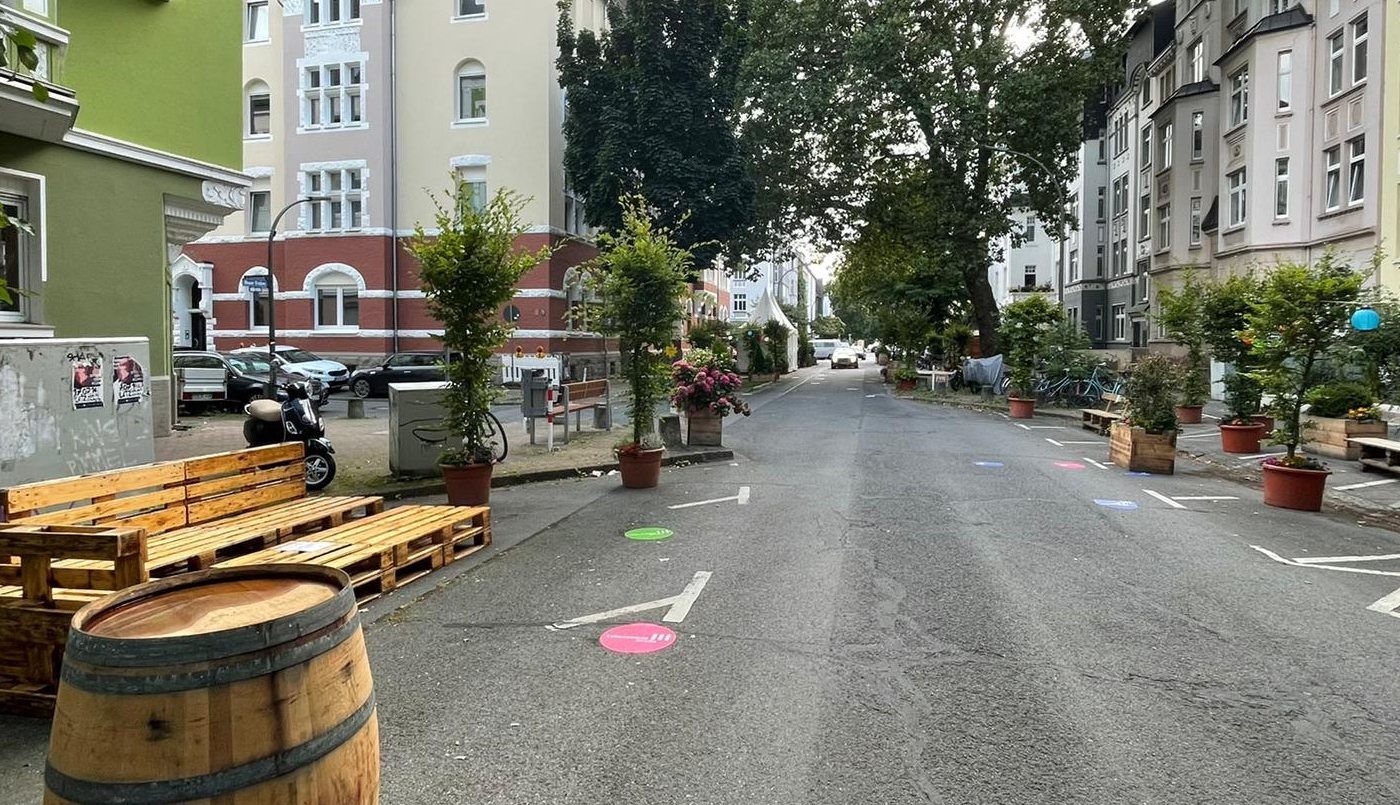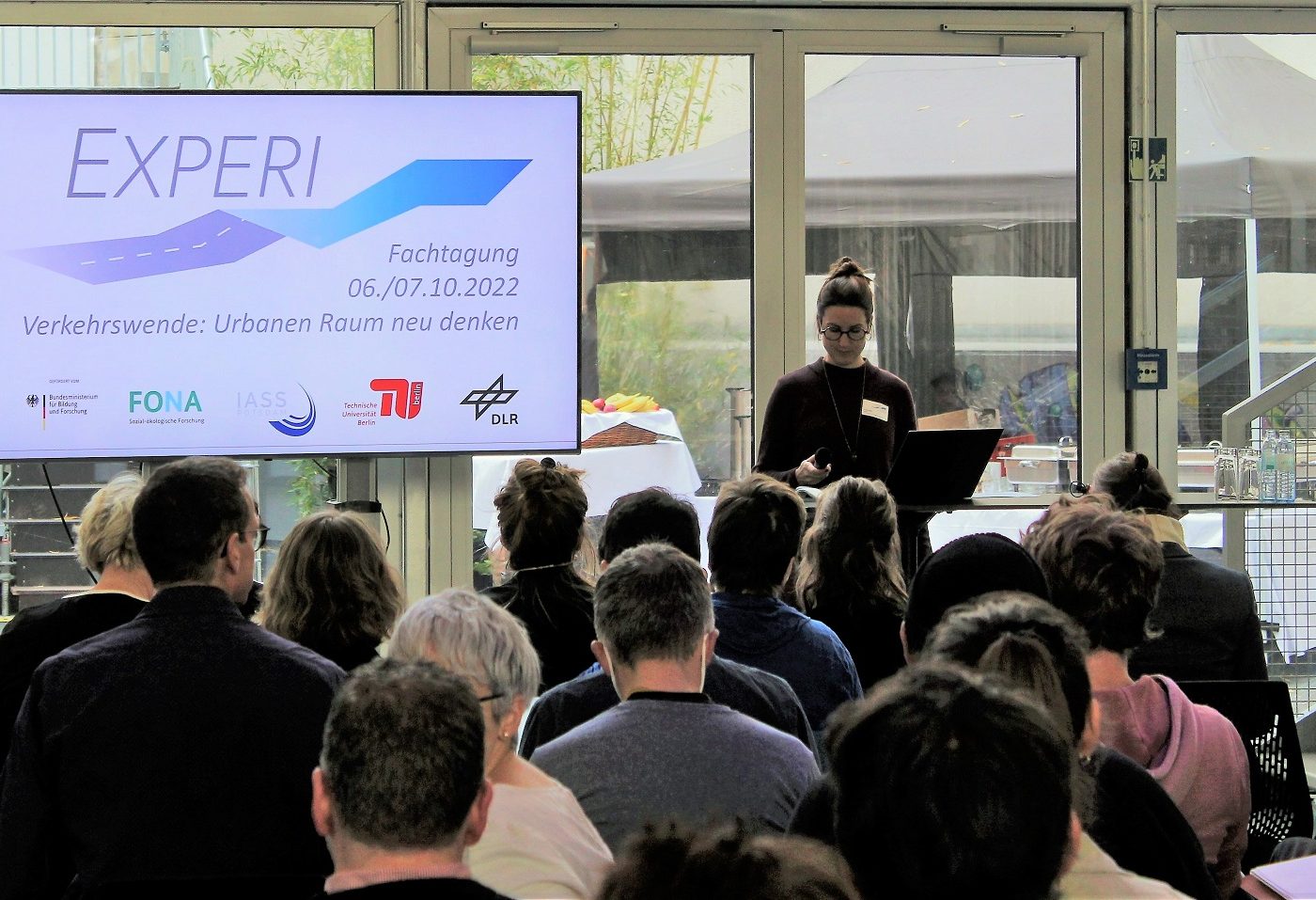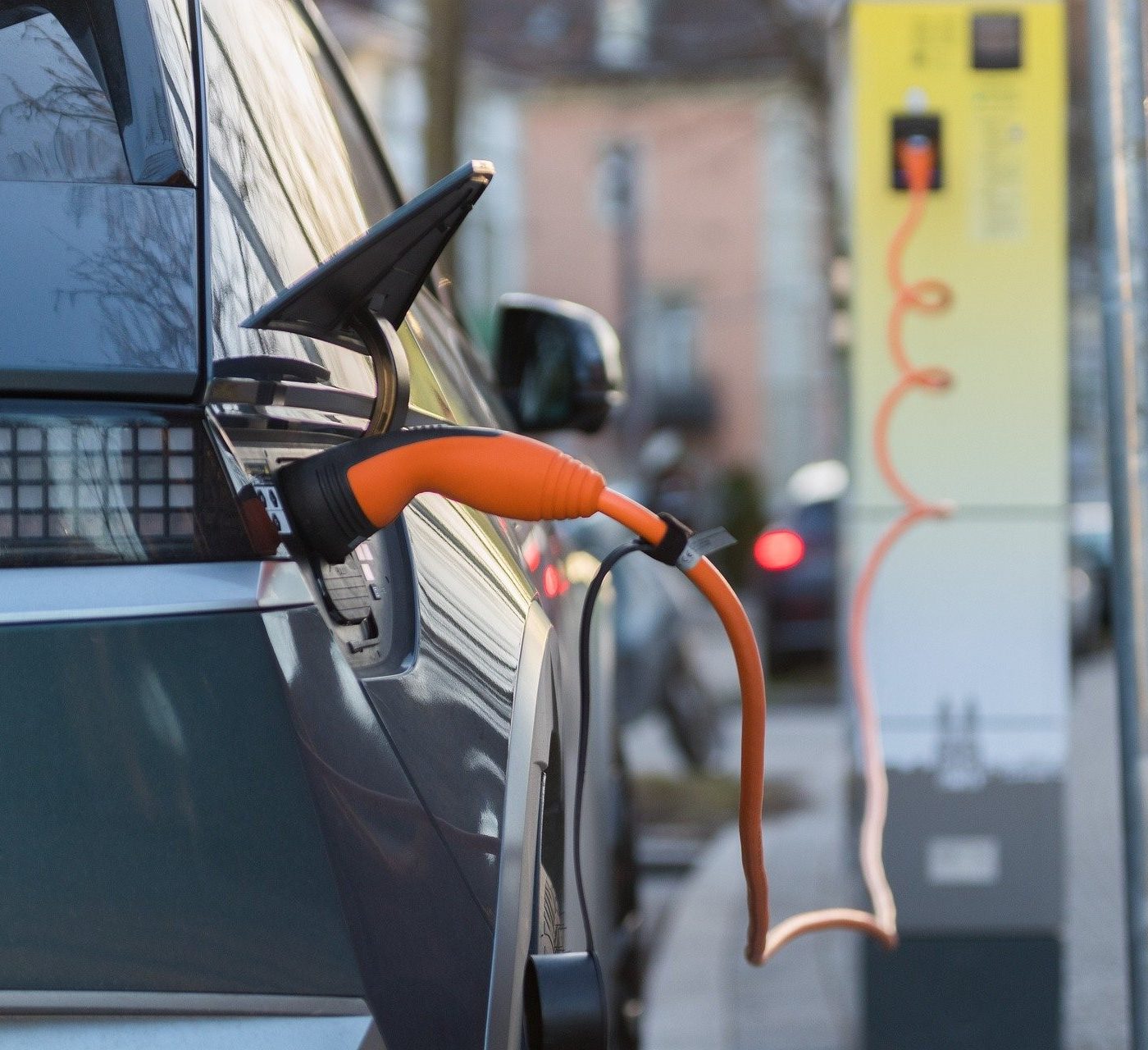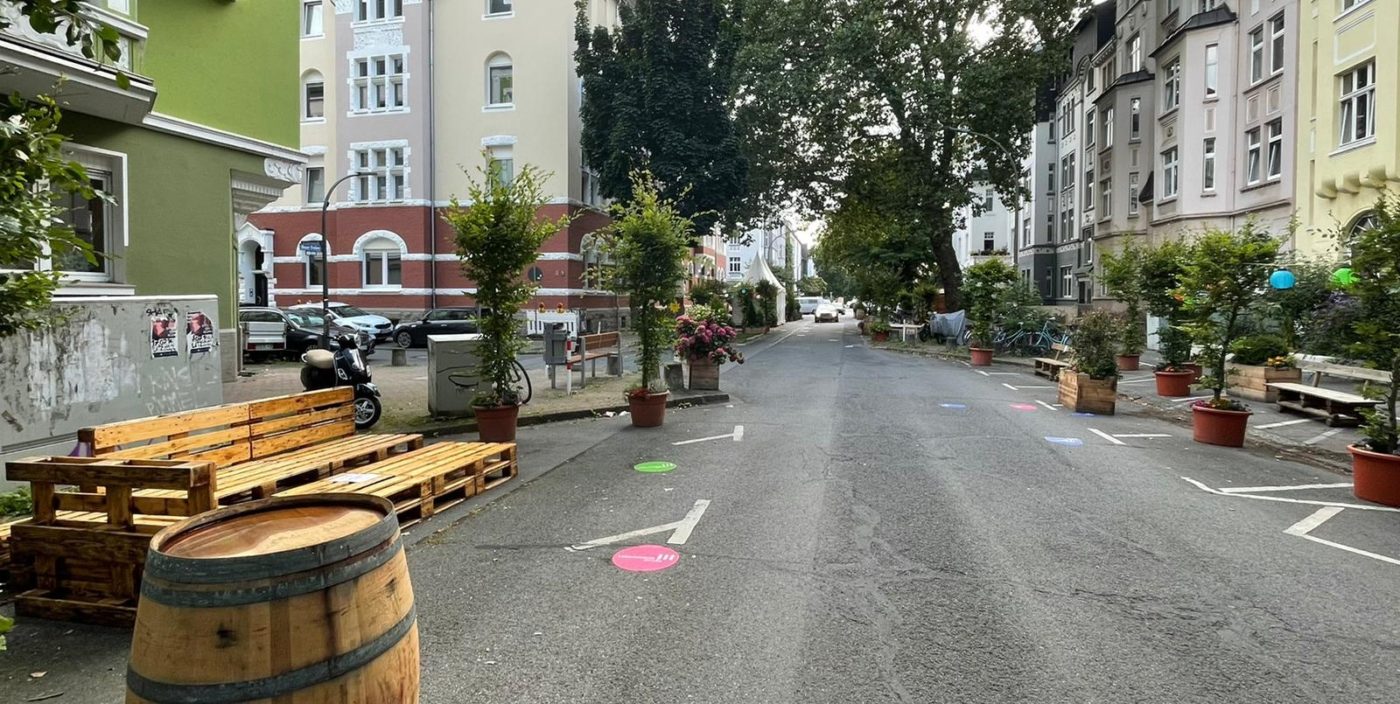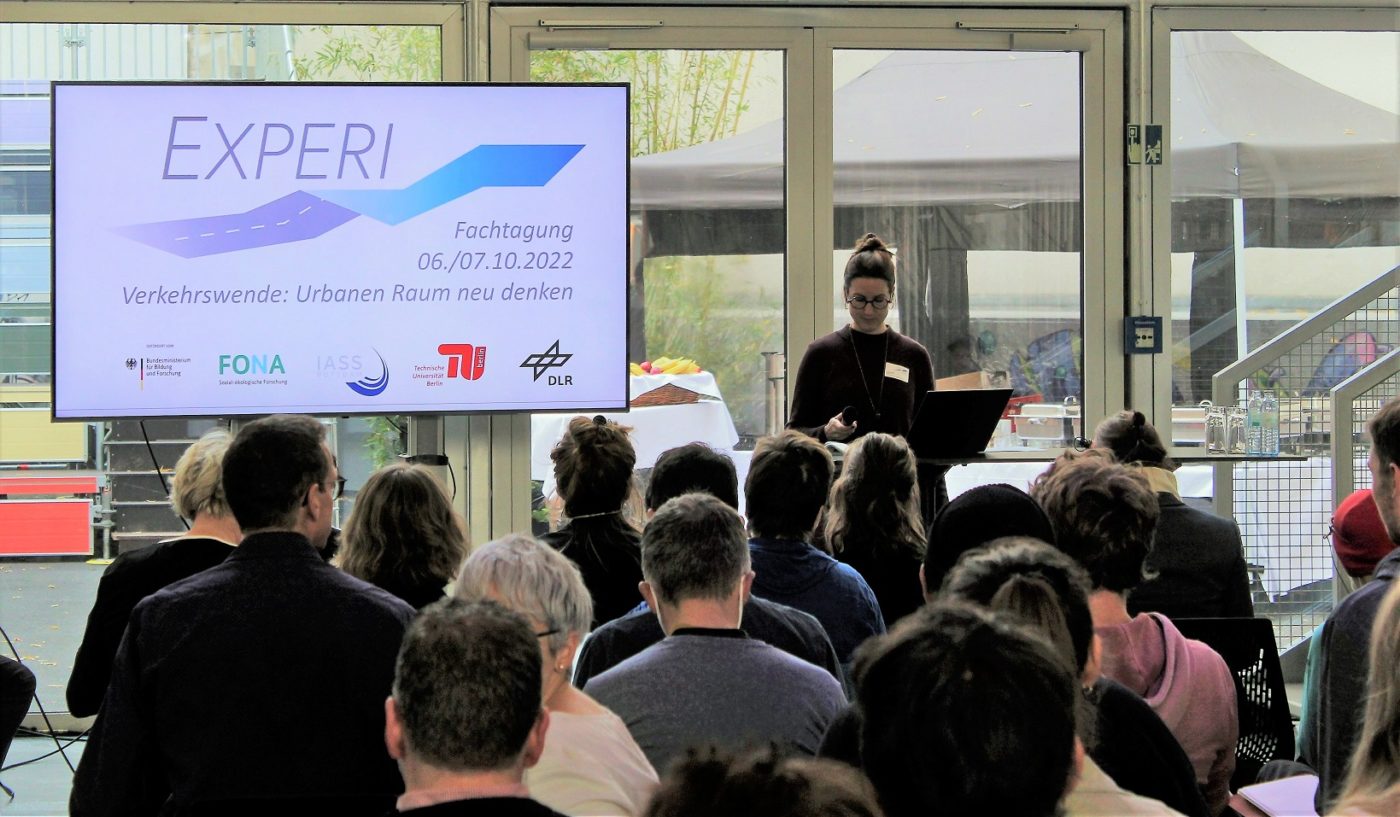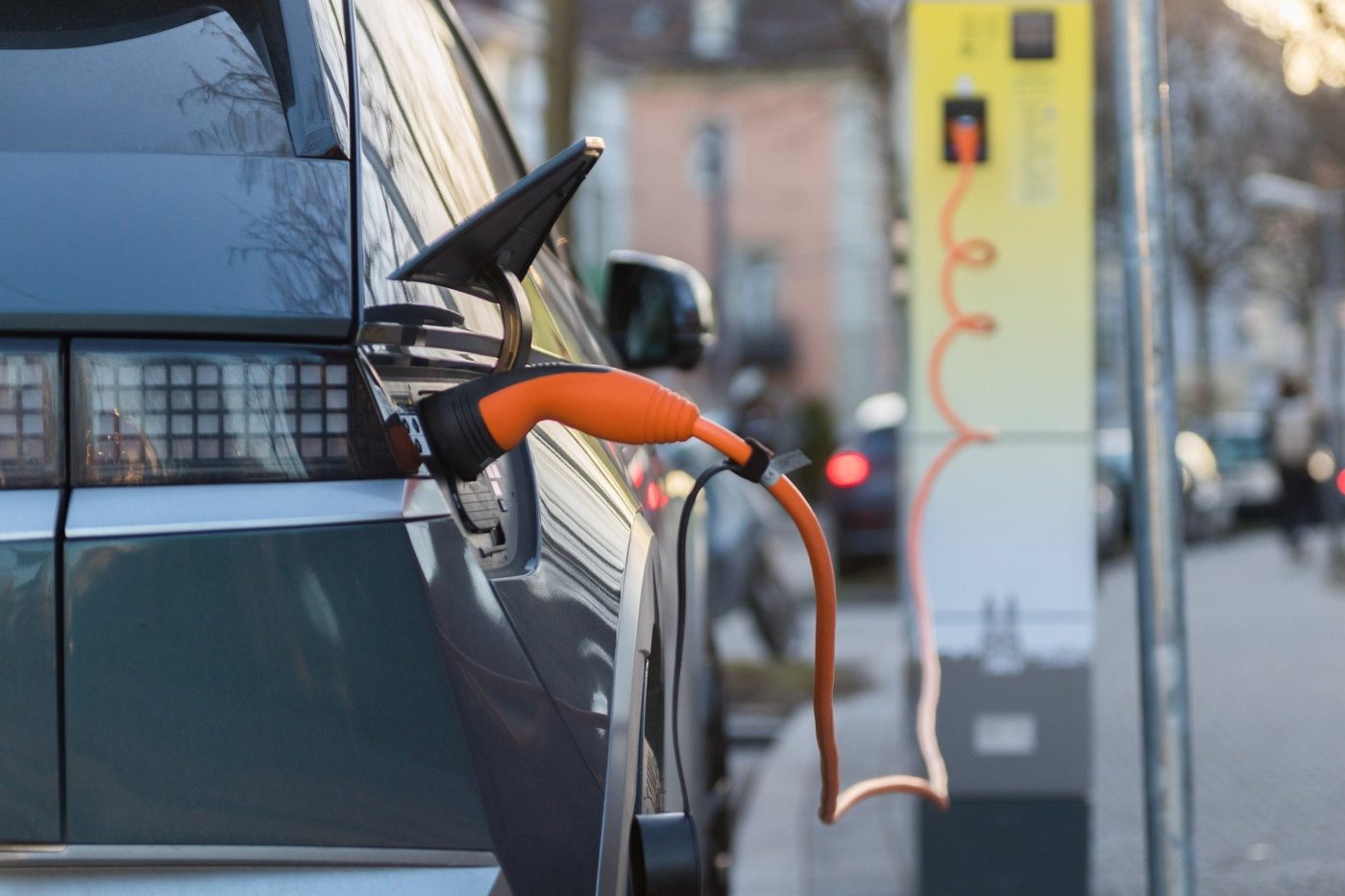Category Blog
Seit 2019 dürfen wir mit unserer Forschungsgruppe EXPERI in Berlin die „Verkehrswende als sozial-ökologisches Realexperiment“ wissenschaftlich begleiten und analysieren. Der Fokus unserer interdisziplinär zusammengesetzten Gruppe liegt dabei auf den sozialen und räumlichen Aspekten von städtischer Mobilität. In unserer Ideensammlung "Impulse für die urbane Verkehrswende" finden Sie kurze Einblicke in zentrale Forschungsergebnisse und insgesamt 18 Vorschläge für die zukünftige Gestaltung von Transformationsprozessen im Bereich Mobilität und Verkehr.
Category Blog
Der Expertenbeirat Klimaschutz in der Mobilität berät das Bundesministerium für Digitales und Verkehr während der 20. Legislaturperiode. Auf der Sitzung am 14. Juni fand ein intensiver Austausch mit Bundeminister Dr. Wissing statt, aus der Anregungen für die weitere Arbeit am Thema Klimaschutz im Verkehr entstanden sind, insbesondere auch in Hinblick auf Akzeptanz, Verhalten, Kommunikation und Lebensqualität.
Category Blog
Die Klimazeit bietet wöchentlich Hintergrundberichte, ordnet mit Expert*innen neueste Ergebnisse der Klimaforschung ein, erklärt in aufwändigen Grafikanimationen alles Wissenswerte rund ums Klima, hinterfragt Entscheidungen der Politik und zeigt konstruktive Beispiele, was Konsument*innen, Unternehmen und Kommunen für die Rettung des Klimas tun können.
Category Blog
Real-world experiments have become popular in urban planning and mobility research. But what contribution can they make to a sustainable and equitable transport transition? A new study shows where real-world labs fall short.
Category Blog
Organised by the EXPERI research group, the symposium “The Transport Transition: Rethinking Urban Space" opened on 6 October 2022 at Place of Participation – a pop-up venue on Kurfürstendamm – attended by almost 100 guests and the EXPERI team.
Category Blog
The 10% share of motorised private transport (MIV) calculated in the 2050 scenario (incl. car sharing, taxis, etc.) must have 100% alternative drive systems. This vision is supported at the municipal level in particular with subsidies for charging infrastructure for electric automobility. This long-term scenario illustrates that electric mobility, along with other alternative drive technologies, is seen as a key to achieving a decarbonised and sustainable transport system. Against this background, this article examines how the efforts to attain a 10% rate of motorised private transport in Berlin are currently distributed spatially.
Category Blog
Seit 2019 dürfen wir mit unserer Forschungsgruppe EXPERI in Berlin die „Verkehrswende als sozial-ökologisches Realexperiment“ wissenschaftlich begleiten und analysieren. Der Fokus unserer interdisziplinär zusammengesetzten Gruppe liegt dabei auf den sozialen und räumlichen Aspekten von städtischer Mobilität. In unserer Ideensammlung "Impulse für die urbane Verkehrswende" finden Sie kurze Einblicke in zentrale Forschungsergebnisse und insgesamt 18 Vorschläge für die zukünftige Gestaltung von Transformationsprozessen im Bereich Mobilität und Verkehr.
Category Blog
Der Expertenbeirat Klimaschutz in der Mobilität berät das Bundesministerium für Digitales und Verkehr während der 20. Legislaturperiode. Auf der Sitzung am 14. Juni fand ein intensiver Austausch mit Bundeminister Dr. Wissing statt, aus der Anregungen für die weitere Arbeit am Thema Klimaschutz im Verkehr entstanden sind, insbesondere auch in Hinblick auf Akzeptanz, Verhalten, Kommunikation und Lebensqualität.
Category Blog
Die Klimazeit bietet wöchentlich Hintergrundberichte, ordnet mit Expert*innen neueste Ergebnisse der Klimaforschung ein, erklärt in aufwändigen Grafikanimationen alles Wissenswerte rund ums Klima, hinterfragt Entscheidungen der Politik und zeigt konstruktive Beispiele, was Konsument*innen, Unternehmen und Kommunen für die Rettung des Klimas tun können.
Category Blog
Real-world experiments have become popular in urban planning and mobility research. But what contribution can they make to a sustainable and equitable transport transition? A new study shows where real-world labs fall short.
Category Blog
Organised by the EXPERI research group, the symposium “The Transport Transition: Rethinking Urban Space" opened on 6 October 2022 at Place of Participation – a pop-up venue on Kurfürstendamm – attended by almost 100 guests and the EXPERI team.
Category Blog
The 10% share of motorised private transport (MIV) calculated in the 2050 scenario (incl. car sharing, taxis, etc.) must have 100% alternative drive systems. This vision is supported at the municipal level in particular with subsidies for charging infrastructure for electric automobility. This long-term scenario illustrates that electric mobility, along with other alternative drive technologies, is seen as a key to achieving a decarbonised and sustainable transport system. Against this background, this article examines how the efforts to attain a 10% rate of motorised private transport in Berlin are currently distributed spatially.





